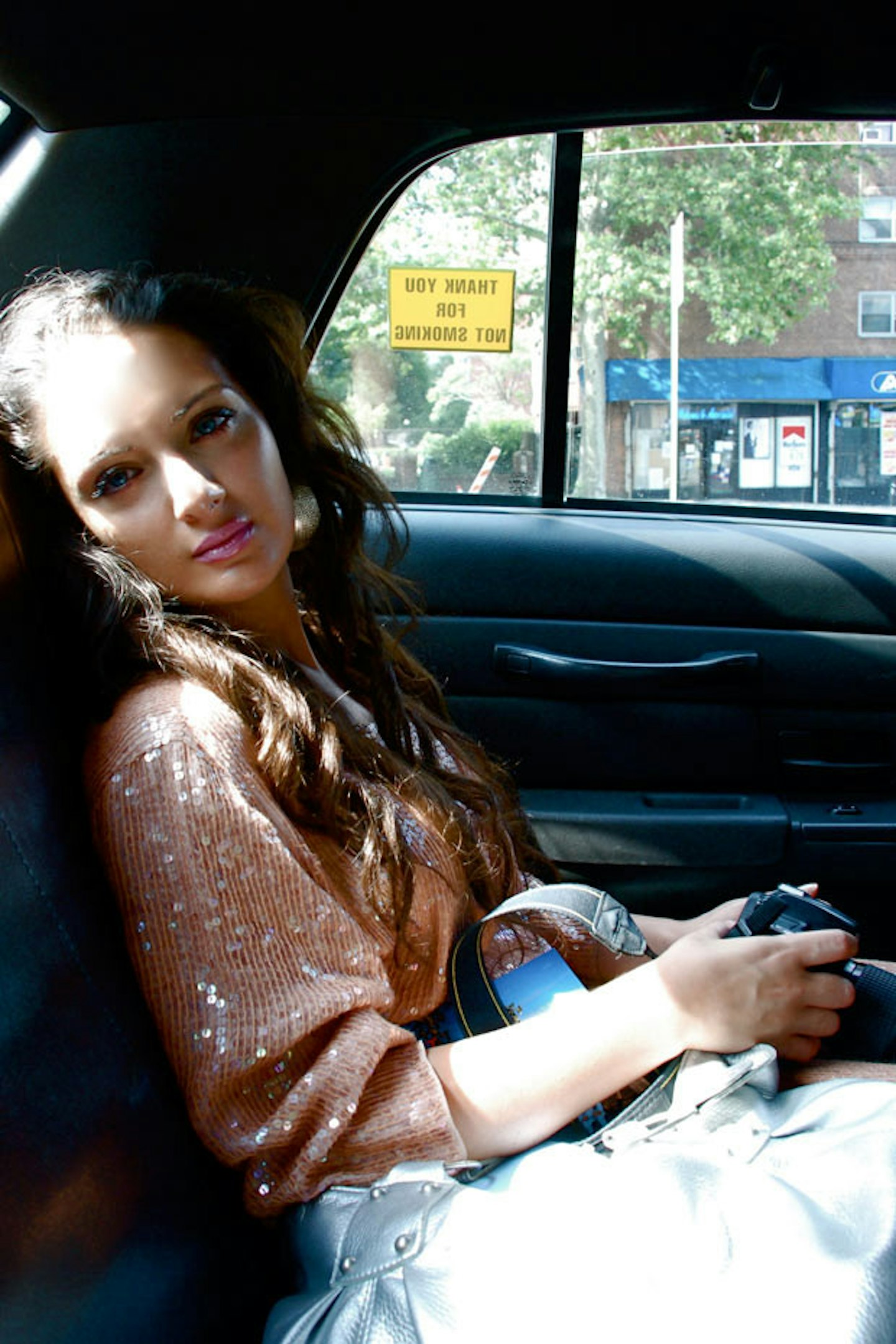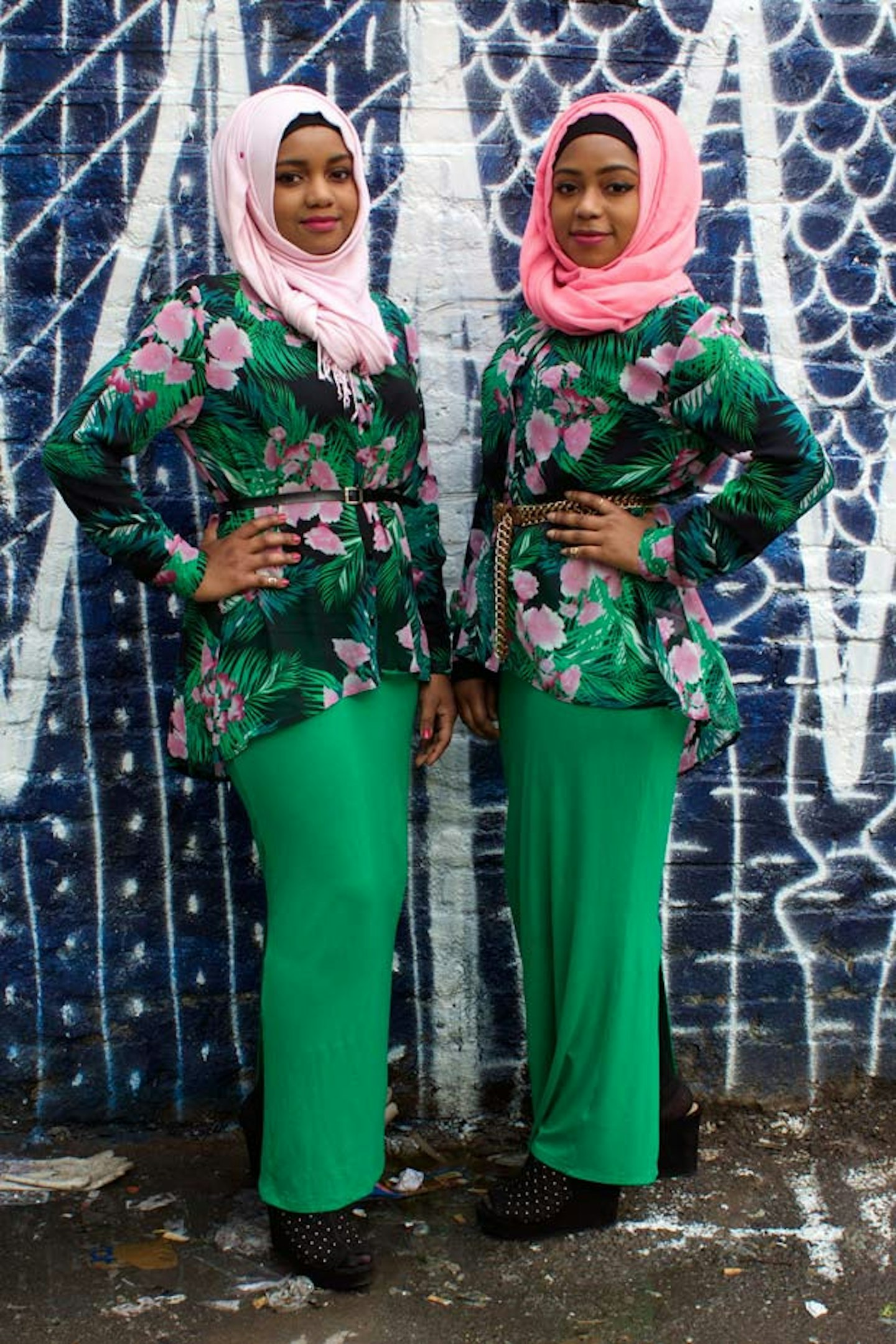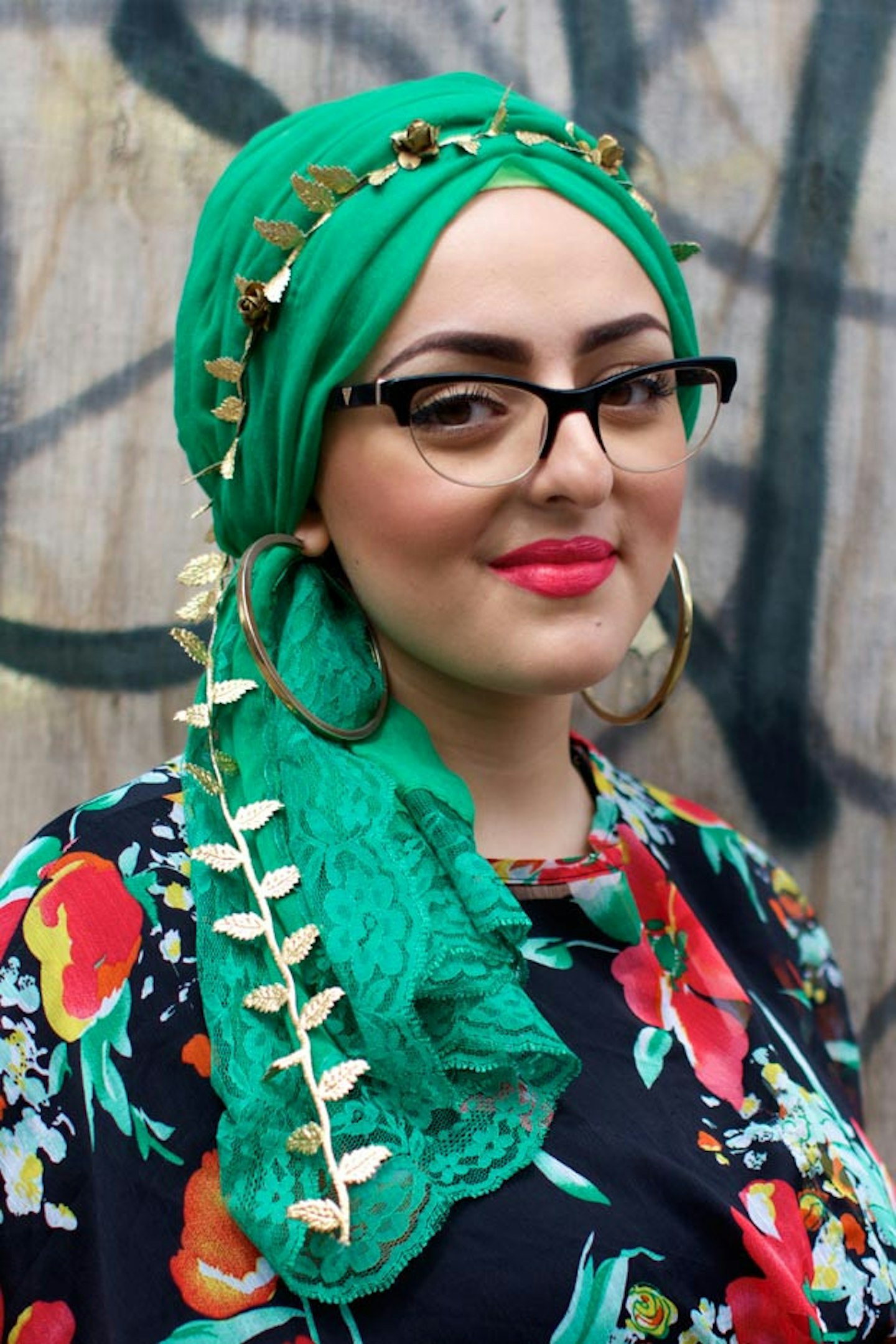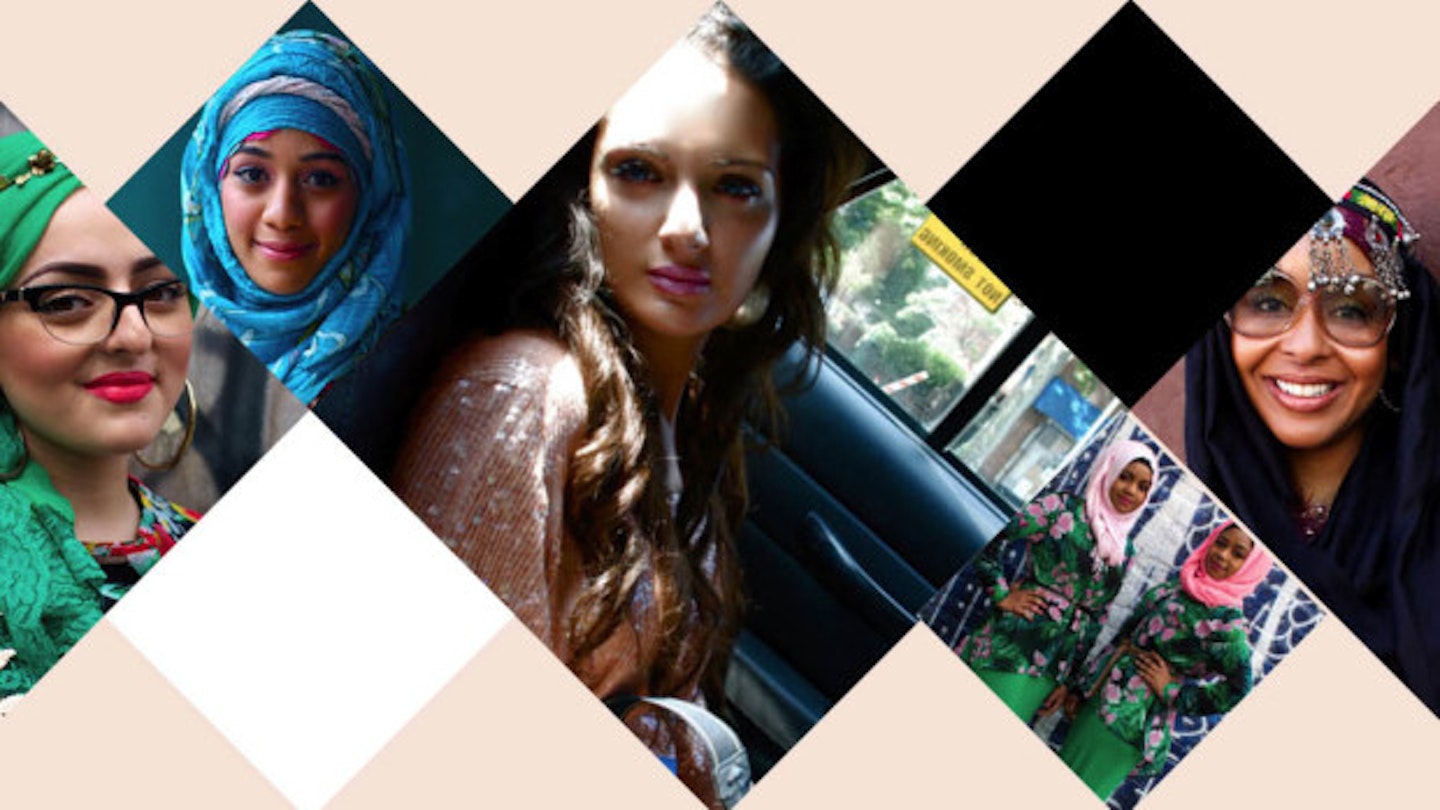Google can quickly churn up the social imagination of our times. And, sadly, if you type in ‘muslim woman’, you will find a shallow, and inaccurate, portrayal thrown back at you. In case you don’t have time to check for yourself, a Google Images search essentially comes up with one image of a woman wearing a black burqa that’s been deployed to sell articles.

This is where artist Sara Shamsavari comes in. Through her diverse and colourful photography, she is dismantling, in her words, ‘the image of Muslims which has been generalised and associated with negativity in the Western media’.
She explains that as an artist she’s interested in ‘the exploration of identity and the concept of transformation and our ability as human beings to respond to challenges by creating something new and beautiful’.
So, with this in mind, she turned her eye to Muslim women and, with her project, the Veil series – which she began in 2010 – sought to challenge negativity and misunderstandings associated with their identities.

Shamsavari took to the London streets armed with her camera and began to document the variety of ways the hijab is worn. At the start, she took 100 photographs of women in different areas of London. And, from the photos, one can instantly see not only the innovative ways that veil-wearing women style themselves but also recognise the range of ethnic backgrounds.
This has a dual effect on the viewer. Not only does Sara’s work celebrate the individuality of these women, it also seeks to show how reality differs from the often incorrect portrayal of women who choose to wear the veil that the Western media churns out.
Shamsavari intentionally does not get into the political symbolism of the veil, but the youthful energy that her work exudes subtly dismantles the outdated, and ignorant, view that the wearing of the hijab equates to oppression.

Perhaps as testament to her nature, Shamsavari even takes a balanced approach to why she focuses her work around the subject of identity. Rather than seeing this ignorance around Islamic identity as a sole facet of British society, she instead says that ‘it is not just Britain – it’s the whole world. As long as ignorance exists it needs to be challenged. When you meet people from all over the world who hold fearful ignorant beliefs about those who are different from them it ironically confirms how similar we are to one another.’
To further combat this ignorance, she created a film to amplify the voices of the women she met which, according to her, ‘certainly gave the project more reach’. The expansion into video was in accordance with Shamsavari’s wider philosophy of ‘asking all of us to see each other as complex human beings rather than through the reductive terms we are fed’.

Recently, there has been some positive movements with brands such as H&M recognising the need for better representation of Muslims in the mainstream media. One of their latest campaigns is their first to feature a model wearing a hijab.
Shamsavari sees the positivity in the campaign. ‘It translates many of the values that I and many of my contemporaries believe in, the same values that can be seen in my own work – an acceptance of difference and individuality, style and a need for collective responsibility,’ she says.
*Sara is showchasing the full body of her work which now spans three cities, LONDON VEIL/PARIS VEIL/NYC VEIL shows at Library London from November 2-14. The Preview/Artist Signing will take place on November 2 at 6pm. RSVP bookeeper@lib-rary.com. Pre-order artist editions here.
**Liked this? You might also be interested in: **
Why You Need To Watch The Documentary Exploring If Britain Is Actually Racist
This article originally appeared on The Debrief.
